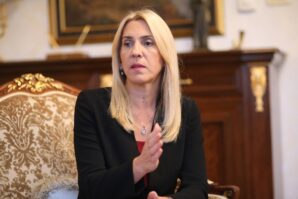Argentina’s newly elected president, Javier Milei, will have no time to enjoy his Sunday victory as he inherits a country crippled by inflation and short of cash from creditors and international solidarity.
”Being president of Argentina has to be one of the most difficult jobs in politics in the world,” said Benjamin Gedan, director of the Argentina Project at the Wilson Center in Washington.
”The problems have become so deep, complex and intertwined that it is not easy to solve them, even if they are easy to identify,” he said.
Milei came to power on a wave of anger over decades of mismanagement, promising to drop the national currency, the peso, in favor of the U.S. dollar, close the central bank, and cut spending.
He promised “an end to Argentina’s decline” and warned that there was no time for “gradualism or half-measures”.
He will take office on December 10th, while analysts predict a tough path ahead with inflation at 143 percent and poverty levels above 40 percent.
Milei proposed dollarizing the economy by 2025 to stop the “cancer of inflation,” meaning he would drop the peso and Argentina would lose control over monetary policy such as setting interest rates.
Dollarization requires large reserves of greenbacks, and the International Monetary Fund (IMF) has warned that Argentina’s dollar reserves are dangerously low.
Even with the support of the center-right opposition, political newcomer Milei has “very little legislative power,” said analyst Carlos Gervasoni of Torcuato Di Tella University.
”So, there is no way to pass laws that, for example, require changing the country’s currency or closing the central bank,” he explained.
To try to contain inflation, the Argentine government has for years strictly controlled the exchange rate of the peso against the dollar, which was frozen three months before the elections and is now allowed to devalue at three percent per month, reports AFP.

















